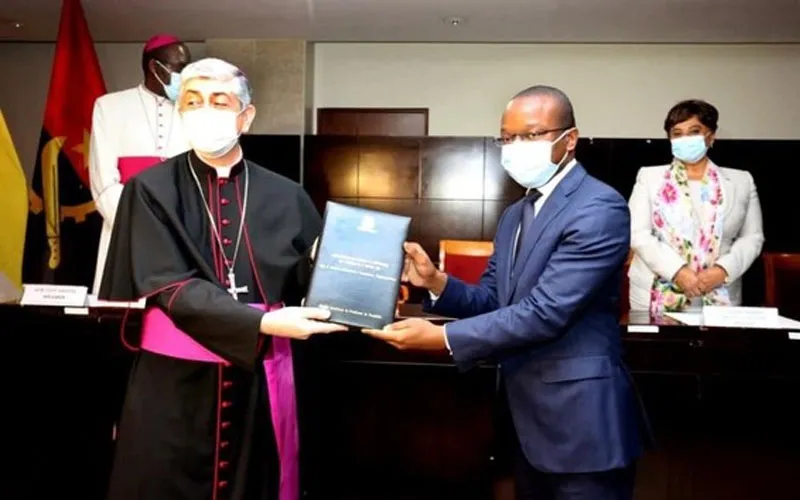Luanda, 14 October, 2021 / 10:06 pm (ACI Africa).
The regulatory and administrative instruments of the Framework Agreement signed between the Holy See and the Republic of Angola in 2019 is expected to facilitate the Catholic Church’s role in working for the common good, an Angolan Archbishop has said.
Speaking at the formal handing over of the legal and administrative regulatory sectoral instruments of the Framework Agreement Tuesday, October 12, the President of the Catholic Bishops’ Conference of Angola and São Tomé (CEAST), Archbishop Manuel Imbamba, thanked the Angolan State for its “willingness to collaborate with the Catholic Church.”
“Today we are receiving these instruments that will regulate all our social and pastoral activities for the good of all of us,” Archbishop Imbamba said.
The Local Ordinary of Angola’s Saurimo Archdiocese noted that the Framework-Agreement will “allow the Church to work for the common good and in favor of the Angolan society and all those who want to see Angola grow in the path of good, justice, peace and unity.”
The Church wants to be that space of “encounter, communion and dialogue that will help to light paths, consciences and perspectives that will help us to find dignity and affirmation of happiness and realization,” he further said.








